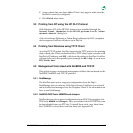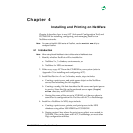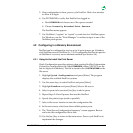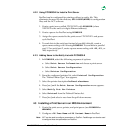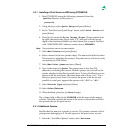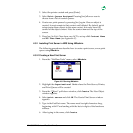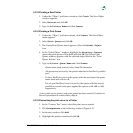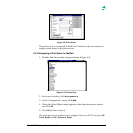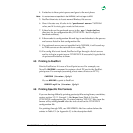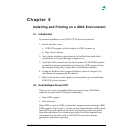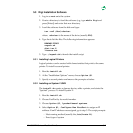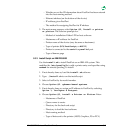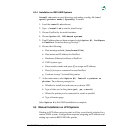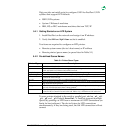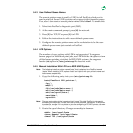
MIL-3000FTX Series of FastPort Print Servers 4-8
4.4 Configuring in a Bindery and NDS Environment
FastPort can operate in a mixed Bindery/NDS environment. Use one of the
previous methods to install it. Adhere to the following restrictions:
• FastPort can service up to 16 queues on a total of 16 servers.
• FastPort cannot service bindery queues and NDS queues on the same
server (i.e., two connections—one bindery, one NDS—on the same
server). If using NDS on a server and there is a fpxxxxxx configuration
for this FastPort in the login/milan directory, then remove it.
• FastPort can service NDS queues in only one tree.
• When logged into NDS as an NDS print server, configure FastPort with
only one NDS printer object. Specifies such things as which port to send
data (LPT or COM) by creating special queue name suffixes.
The difference between configuring bindery or NDS queues:
• When servicing Bindery queues, FastPort will read a configuration file
stored in the sys:\login\milan directory. In addition, users may
modify the setting in FastPort called “Preferred Server.” This
refers to the Bindery File Server that holds the configuration file.
• When servicing NDS queues, FastPort must be configured with a
context name, and may be configured with a tree name. This can be
done with FastManage or ACT.
• When configured for NDS, FastPort does not use a config. file. It logs
into the context where it was configured, locates the printer and queues
that it should service.
• Regarding manual configuration of print server, queues, and printers
for FastPort (within PCONSOLE or NWadmin): Bindery print servers are
directly attached to bindery print queues. NDS servers are attached to a
single printer, which is attached to (possibly) many print queues.
When configured to service both Bindery and NDS queues, FastPort does
the following:
1. At boot-up, FastPort tries to locate an NDS server.
2. It now looks at the context it has been configured with and tries to login
as print server FPXXXXXX.
3. It now gets the printer attribute from the print server, and gets a list of
print queues that the printer should service.



